Ready to increase your impact in Science and Technology Diplomacy?
Watch the recordings of our w2025 webinar series to develop your knowledge of Science and Technology Diplomacy in Asia and Europe! As part of the Asia-Europe Training on Science and Technology Diplomacy 2025, we invite you to catch up on the recordings from the public webinars that took place from 28 October–2 December 2025.
Through a series of expert-led webinars, these online webinars explore dkey aspects of Science and Technology Diplomacy: how scientific advancements shape international relations; the role of diplomatic efforts in enabling scientific cooperation and progress; how new technologies and innovation is transforming the field; and how personal, cultural, and professional perspective shape the way we communicate in science and technology diplomacy and engage in international collaboration.
The Webinar series has concluded, but you can watch the recordings from the 5 sessions in October-December 2025 where we deep dive into the different aspects of Science and Technology Diplomacy.
All webinars took place between 16:00-17:30 SGT | 09:00-10:30 CET:
- Webinar 1 | 28 October 2025 : Science Impacting Diplomacy
- Webinar 2 | 4 November 2025: Diplomacy Impacting Science
- Webinar 3 | 18 November 2025: Tech Diplomacy: Emergence and Future Directions
- Webinar 4 | 25 November 2025: Values, Biases, and Worldviews: Building Intercultural Awareness for Science Diplomacy
- Webinar 5 | 2 December 2025: Two Worlds, One Mission: How Scientists and Diplomats Practice Science Diplomacy
Read more about each session and watch the full recordings below!
SESSION 1 | TUESDAY, 28 OCTOBER 2025 | Science Impacting Diplomacy
16:00-17:30 SGT | 09:00-10:30 CET | Zoom
In this session, we explored the theoretical concept of Science Impacting Diplomacy and explore how science cooperation can be used to improve relations between countries and informing foreign and security policy objectives with scientific advice. Attendees could familiarise themselves with some notable examples on how this is practiced in Asia and Europe.
Keynote Presenter & Panellist
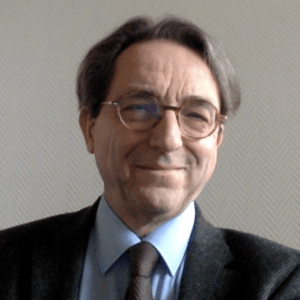
Prof Pierre-Bruno RUFFINI
Emeritus Professor, Le Havre University Normandy, France
Professor Pierre-Bruno RUFFINI has spent most of his academic career as an economist, with a strong orientation towards international economics. He served as President of the University of Le Havre (2000-2005) and as a Counselor for science and technology at the French embassies in Russia (2007-2010) and Italy (2010-2013). Since returning to academia, he has devoted most of his research activity to the theme of science diplomacy. In addition to many research articles, he authored the first book devoted to this subject (Science and Diplomacy – A New Dimension of International Relations, Springer, 2017). From 2018 to 2022, he served as an expert in the European research project ‘Inventing a Shared Science Diplomacy for Europe’ (InsSciDE-H2020). In 2024-2025, Prof Ruffini co-chaired the European Union Science Diplomacy Alliance and was a member of the EU Science Diplomacy Working Groups. He is now an emeritus professor affiliated to Le Havre University Normandy and a vice-president of AVRIST (Association pour la Valorisation des Relations internationales Scientifiques et Techniques – France).
Panellists
Professor Anantha Duraiappah is the inaugural director of UNESCO MGIEP in New Delhi, India—UNESCO’s first category one institute in the Asia-Pacific region. His vision was to build the competencies of empathy, compassion, critical inquiry and emotion regulation as foundations for learning to learn. He is a strong believer in AI for good and believes that the personalization of learning to build a learner’s potentiality is a human right. He is a fellow of The World Academy of Sciences as well as a Fellow of the World Academy of Arts and Sciences. Professor Duraiappah, received his PhD in economics from the University of Texas in Austin, USA. He has authored numerous books and journal articles. He was the Co-Chair of the Biodiversity Synthesis Group of the Kofi Anna commissioned Millennium Ecosystem Assessment and founding director of the Inclusive Wealth Report released at the Rio+20 Summit in 2012. Duraiappah is presently focusing on researching and exploring how “Firing Gandhi Neurons” can be integrated into the educational curricular of the formal, informal and non-formal education systems around the globe.
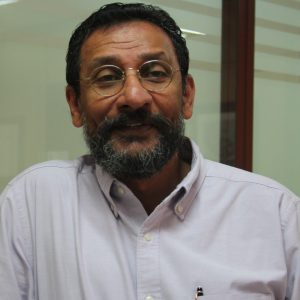
Prof Anantha kumar DURAIAPPAH
Adjunct Professor, UCSI-IISDS, Inaugural Director of UNESCO Mahatma Gandhi Institute of Education for Peace and Sustainable Development (MGIEP)
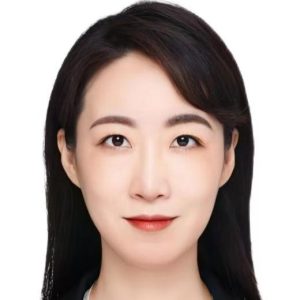
Dr Fang XU
Professor of CASISD, Institutes of Science and Development, Chinese Academy of Sciences(CASISD) and Deputy director of Research Evaluation Center, Chinese Academy of Sciences (CASERC)
Dr. Fang Xu has long been committed to the theoretical and methodological research of research evaluation, and emphasizes the combination of theory and practice to promote positive impact at the policy level. She has published over 50 academic papers in prestigious journals,and obtained multiple interviews from domestic and foreign media such as Nature, South Korean National Television, and China Global Television Network. In recent years, Dr. Xu has completed multiple consulting reports on research evaluation, which have been recognized by many national leaders. She has promoted the recent research evaluation reform launched in China in 2018 and provided decision-making support for the formulation of policies on research evaluation reform in China. At the same time, Dr. Xu actively follows the trend of international research evaluation reform, and conducts in-depth exchanges and cooperation with well-known international organizations and scholars. She has become a representative researcher of China’s participation in global research evaluation reform and S&T governance. She currently serves as a Steering Committee member of Declaration of Research Assessment (DORA) and ISC Forum on Scientific publishing and Research Assessment, Member of International Networks of Research Management Society Research Evaluation Working Group (INORMS-REG), and Panel of Elsevier International Advisory Group.
Dr Monika Szkarłat is a specialist in international relations and a faculty member at the Institute of Political Science and Administration as well as the Centre for Artificial Intelligence and Computer Modelling at Maria Curie-Skłodowska University in Lublin, Poland. She holds a postgraduate diploma in Intellectual Property Law from the Faculty of Law and Administration at Jagiellonian University in Kraków. She serves as a delegate to the Council of the Polish Polar Consortium, a member of the Presidium of the Polar Research Committee of the Polish Academy of Sciences, and Chair of the Social & Human Working Group within the International Arctic Science Committee (IASC). She is also a member of the Sustainable Development Working Group of the Arctic Council and is actively engaged in the ICARP IV process as a member of Research Priority Team 4 (Diplomacy and Scientific Cooperation). Her research focuses on the interaction between science and policy, in particular on the processes of knowledge transfer and the use of expert knowledge in decision-making and law-making within regional organisations in the Arctic and the European Union. She also studies research security, the securitisation of science, and the legal and societal implications of artificial intelligence and biotechnology.
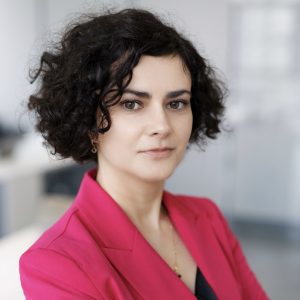
Dr Monika SZKARŁAT
Assistant Professor, Maria Curie-Sklodowska University
SESSION 2 | TUESDAY, 4 NOVEMBER 2025 | Diplomacy Impacting Science
16:00-17:30 SGT | 09:00-10:30 CET | Zoom
Develop a better understanding of the concept of Diplomacy Impacting Science: how diplomatic frameworks, negotiations, and policy environments can enable, limit, and in other ways affect science, research, and innovation institutions and ecosystems. Familiarise yourself with some notable examples on how this is practiced in Asia and Europe.
Keynote Presenter
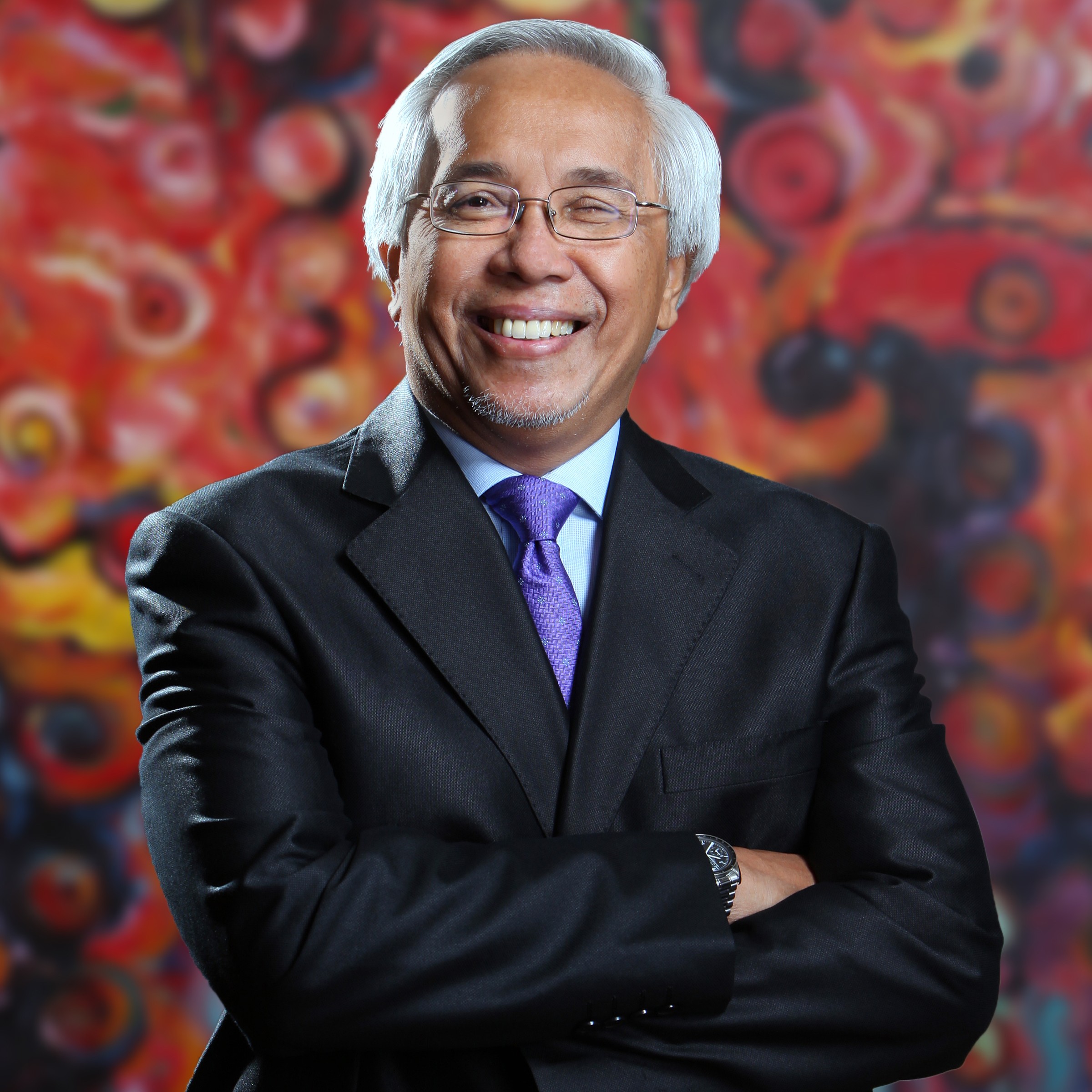
Prof ZAKRI Abdul Hamid
Founding Director, Institute for Science Diplomacy and Sustainability, UCSI, Malaysia
Prof ZAKRI Abdul Hamid is one of Malaysia’s most distinguished science diplomats and sustainability advocates. He served as Science Advisor to the Prime Minister of Malaysia and was the founding Chair of the Intergovernmental Science-Policy Platform on Biodiversity and Ecosystem Services (IPBES). He was also a member of the UN Secretary-General’s Scientific Advisory Board and is currently the Founding Director of the International Institute of Science Diplomacy and Sustainability (IISDS) at UCSI University. Prof. Zakri has played a key role in numerous global and national science and sustainability initiatives, including co-chairing the Millennium Ecosystem Assessment and leading the Malaysian delegation to several UN biodiversity and climate platforms. He is also the Chairman of Atri Advisory and Malaysia’s Science Advisor for the Campaign for Nature 30×30. He continues to shape Malaysia’s role in global sustainability and science-policy governance.
Panellists
Professor Rasmus Gjedssø Bertelsen is Professor of Northern Studies and Barents Chair in Politics at UiT The Arctic University of Norway, and served as Nansen Professor of Arctic Studies at the University of Akureyri (2022–2023). A Danish political scientist deeply committed to the North Atlantic and Arctic, his research spans Arctic international relations, political economy, science diplomacy, geopolitics, and the Arctic’s role in global governance. An active teacher and academic leader, he coordinates Arctic-focused courses and contributes to European science diplomacy strategy. Bertelsen’s career includes posts at Harvard, UN University, and Aalborg University, with academic training in Copenhagen, Reykjavik, Lausanne, Geneva, Amsterdam, and a PhD from Cambridge.
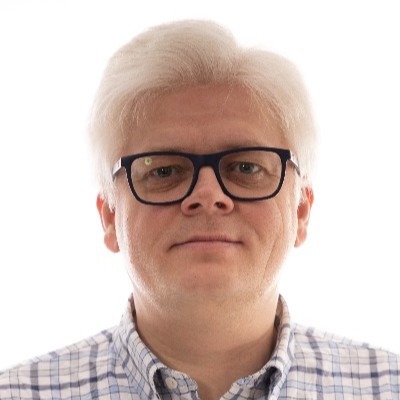
Prof Rasmus GJEDSSØ BERTELSEN
Professor of Northern Studies and the inaugural Barents Chair in Politics at The Arctic University of Norway (UiT)
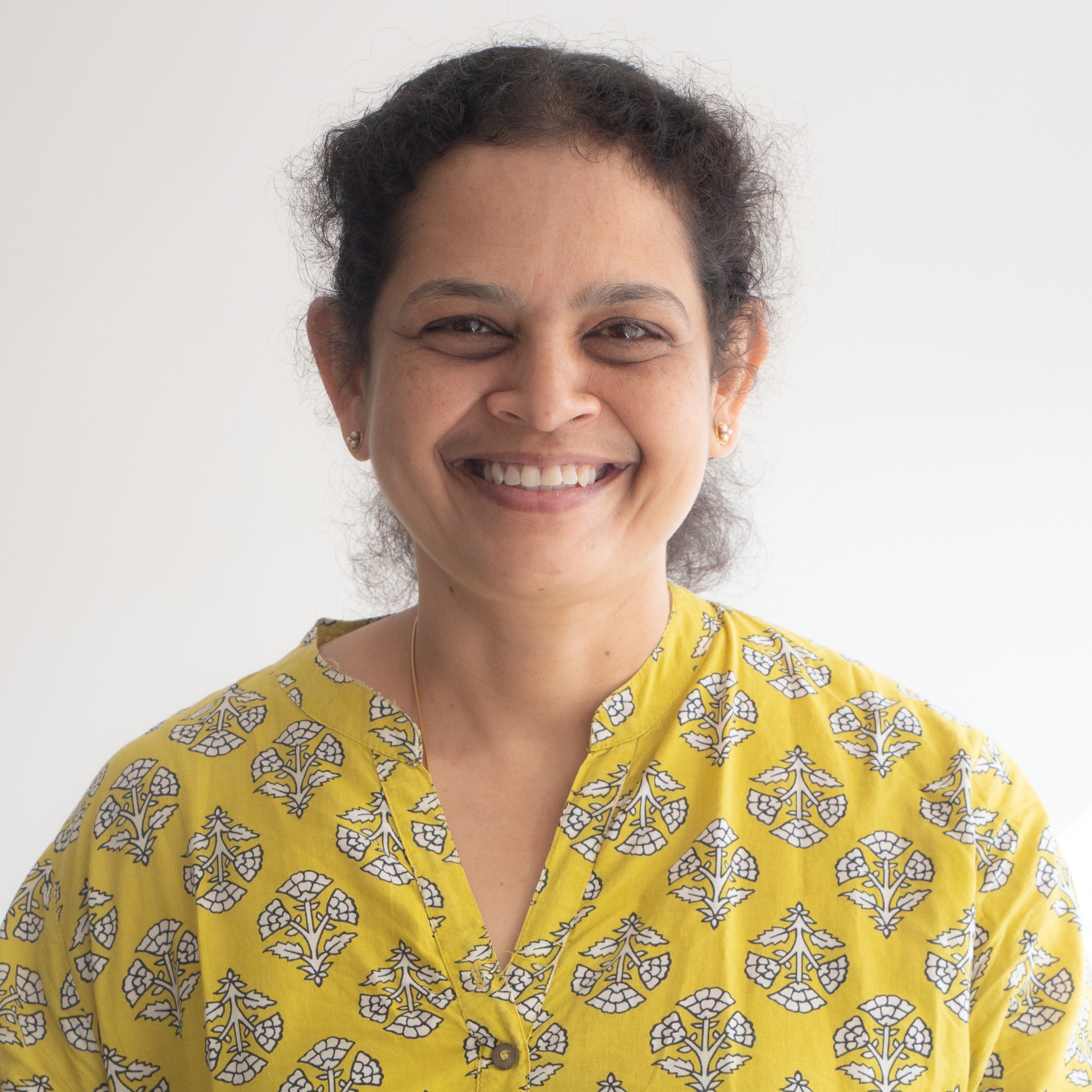
Dr Suneetha MAZHENCHERY SUBRAMANIAN
Research Fellow and Academic Associate, Biodiversity and Society Programme, Institute for the Advanced Study of Sustainability, United Nations University
Dr Suneetha M Subramanian is a Research Fellow and Academic Associate in the Biodiversity and Society Programme at UNU-IAS. She has more than 15 years of experience in international and sub-national research and capacity building activities relating to biodiversity and human well-being with a focus on equity; traditional knowledge; linking policy goals to local priorities and community well-being; assessment of changes to ecosystems and human well-being; socio-ecological resilience; and joint implementation of policies and actions on health and biodiversity at the community level. Dr. Subramanian has been involved as a coordinating lead author in various assessments of the Intergovernmental Science-Policy Platform on Biodiversity and Ecosystem Services (IPBES).
Mr Gábor J. Takacs-Carvalho is a Science & Technology Diplomat at the Embassy of Hungary in London. A former entrepreneur turned science and technology diplomat, he has fostered knowledge and technology transfer between Hungary and the UK since 2018, following a five-year posting as Science and Technology Attaché in New York. With over a decade’s experience in climate policy, sustainable energy, and consultancy, he has served as managing director of the Hungarian Windpower Industry Association, led green investment programs at the Hungarian Ministry of Environment and Water, and lectured at Budapest Business School. Takacs-Carvalho holds degrees from Imperial College London, LSE, Eötvös Loránd University, and Budapest Business School.
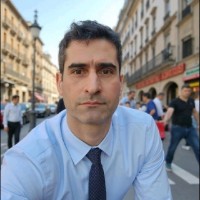
Mr Gábor TAKÁCS-CARVALHO
Science & Technology Diplomat at the Embassy of Hungary in London, Hungary
SESSION 3 | TUESDAY, 18 NOVEMBER 2025 | Tech Diplomacy: Emergence and Future Directions
16:00-17:30 SGT | 09:00-10:30 CET | Zoom
Develop a better understanding of the use of diplomatic tools, processes, and strategies to manage and advance national or international interests related to emerging and critical technologies. Learn about examples of international collaboration on the development and governance of technologies; representation of national interests in multilateral tech-related forums and standards-setting bodies; promoting responsible innovation by ensuring technologies align with human rights, sustainability, and security goals.
Keynote Presenter

Mr Martin RAUCHBAUER
Austrian Career Diplomat, Former Tech Ambassador of Austria to Silicon Valley, Founder of the Tech Diplomacy Network, Austria
Mr Martin Rauchbauer is a senior diplomat in the Austrian Foreign Ministry and the co-founder of the Tech Diplomacy Network in Silicon Valley, a platform connecting governments, civil society, and global technology companies to address planetary challenges through frontier technologies. As Austria’s first Tech Ambassador in Silicon Valley, he helped shape the emerging field of tech diplomacy, driving transatlantic digital policy dialogues, advancing digital human rights, and establishing digital humanism as a strategic pillar of Austrian foreign policy.
With a passion for bridging diplomacy, the arts, technology, and the environment, Mr. Rauchbauer has published and lectured internationally on these topics. Until recently, he served as Executive Director of the Djerassi Resident Artists Program, one of the world’s leading artist residencies, fostering creativity by providing artists with time, space, and inspiration in a setting of extraordinary natural beauty.
He brings over 20 years of experience in international relations, cultural diplomacy, and technology policy, and holds a Master of Arts degree from Johns Hopkins University.
Panellists
Professor Markus KORNPROBST is Professor of International Relations at the Vienna School of International Studies (Diplomatische Akademie Wien, École des Hautes Études Internationales de Vienne). Previously, he researched and taught at the Ohio State University, Oxford University, and University College London. His expertise includes international relations theory, diplomacy, and peace and security. His research appears in top academic journals, and he has published eight books, including Co-managing International Crises (Cambridge University Press, 2019), Irredentism in European Politics (Cambridge University Press, 2008), and co-authored Understanding International Diplomacy (Routledge, 2013 and 2018). He has also co-edited titles such as Cognitive Evolution and World Ordering, Diplomacy and Borderlands, Communication, Legitimation and Morality in Modern Politics, Arguing Global Governance, and Metaphors of Globalization.
His current research covers global ordering, peaceful change, diplomacy, arms control, digital international relations, and global health. At the Vienna School of International Studies, Professor Kornprobst teaches graduate courses in methodology, international relations theory, diplomacy, and negotiation, serves as Dean of the Master of Advanced International Studies offered jointly with the University of Vienna, and supervises doctoral students.
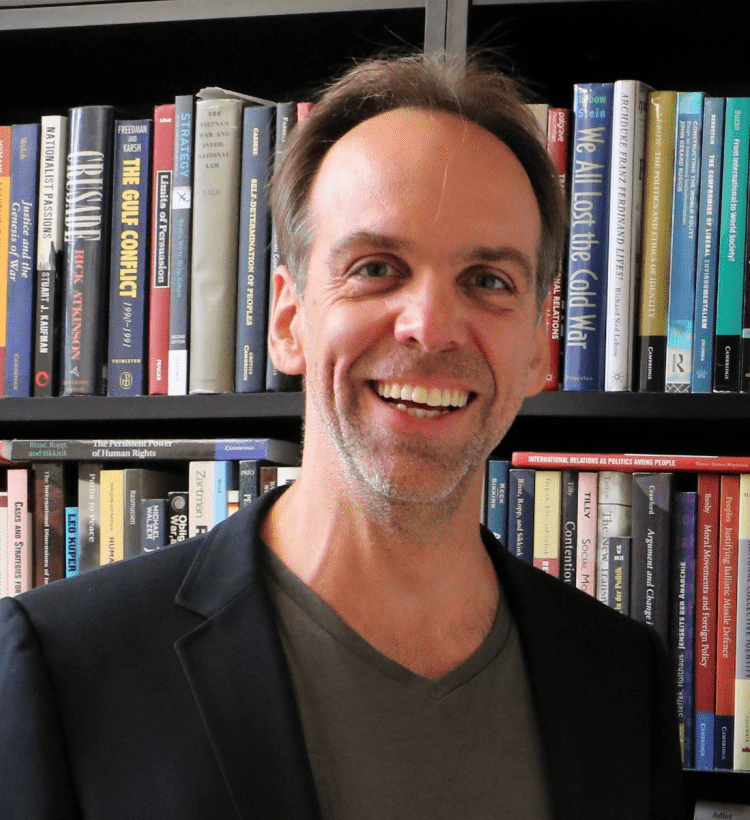
Prof Markus KORNPROBST
Professor of International Relations, Vienna School of International Studies, Austria
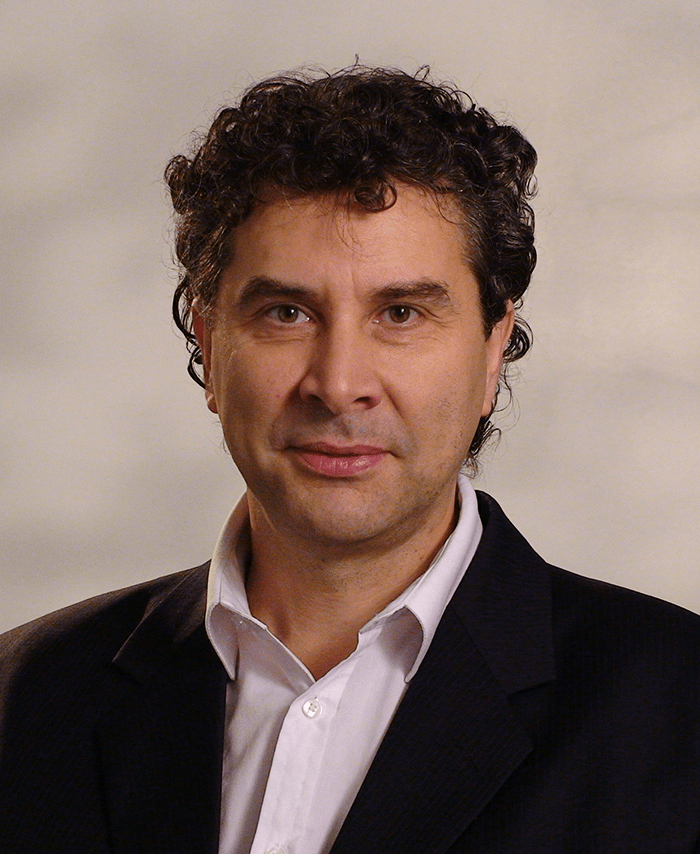
Prof Corneliu BJOLA
Professor of Digital Diplomacy, Course Director - MSc Global Governance and Diplomacy, Head of the Oxford Digital Diplomacy Research Group, Fellow at St Cross College, University of Oxford, United Kingdom
Prof Corneliu BJOLA is Professor of Digital Diplomacy at the University of Oxford and Head of the Oxford Digital Diplomacy Research Group. His research explores the impact of digital technology and artificial intelligence on diplomacy, with a focus on public diplomacy, international negotiations, and countering digital propaganda. Among his recent books are The Oxford Handbook of Digital Diplomacy (Oxford University Press, 2024), Digital International Relations (Routledge, 2023), Countering Online Propaganda and Violent Extremism (2018), and Digital Diplomacy: Theory and Practice (2015). He also co-edited Digital Diplomacy and International Organizations (2020). Professor Bjola regularly advises and trains ministries of foreign affairs and international organizations across Europe, the Middle East, and beyond, and is recognized for his work on the ethical and practical implications of AI in diplomatic practice.
Mr Chris LECK is Chief International Partnerships Officer, Agency for Science, Technology & Research (A*STAR), Singapore. He was featured in the Apolitical and World Economic Forum Global Future Council on Agile Governance’s 2021 Agile 50 list, as one of the world’s 50 most influential people navigating disruption (1 of 4 technologists on the list that year).
Chris has served for more than 20 years in various capacities within the Singapore Public Service. Prior to his current roles, he was Deputy Executive Director of Singapore’s national space office, the Office for Space Technology & Industry (OSTIn). Other senior appointments include Deputy Group Director for Technology & Industry Development at the Land Transport Authority, Director of the Futures & Transformation Division at the Ministry of Transport, and Director of Strategic and Political-Military Planning as well as Director of International Relations for the Americas, Europe, Middle East and Africa at the Ministry of Defence.
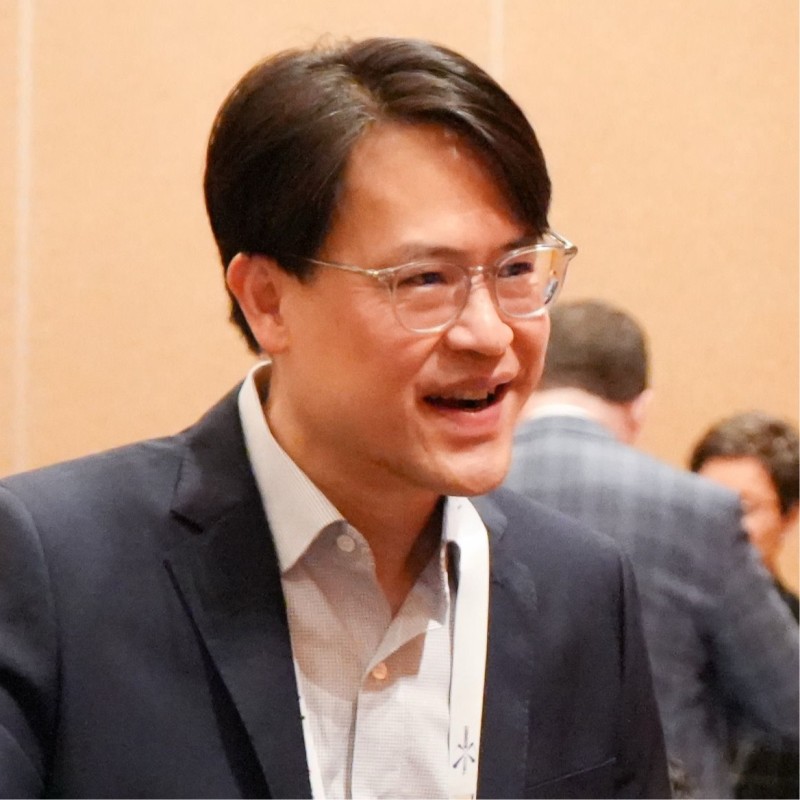
Mr Chris LECK
Chief International Partnerships Officer, Agency for Science, Technology and Research (A*STAR), Singapore
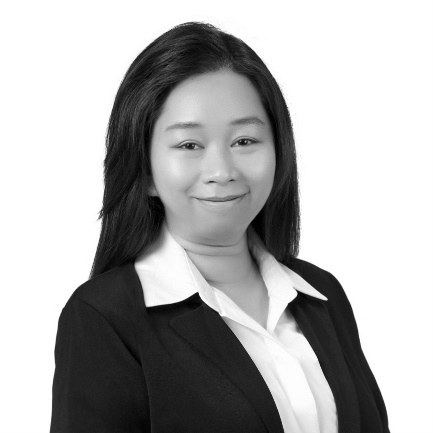
Ms Kotchaphan BOWONCHAIYARIT
Policy Analyst, Office of National Higher Education, Science, Research and Innovation Policy Council (NXPO), Thailand
Ms Kotchaphan BOWONCHAIYARIT is a policy analyst and researcher with experience in business development, government entities, and not-for-profit organizations. Holding Master’s degree in Science and Technology Policy from the University of Sussex, Kotchaphan has expertise in market and technological landscape research, data analysis, and stakeholder management. She has led numerous international projects working with organisations such as Save The Children, Plan International, GIZ, and the United Nations ESCAP. Kotchaphan’s proficiency in advanced analytical tools and strategic policy development enables her to deliver impactful insights and recommendations, fostering capacity building and knowledge transfer in developing countries.
Moderator
Dr. Katharina Höne is a researcher and advisor specializing in diplomacy, international relations, and the intersection of digital technology and global governance. She is currently Scientific Advisor at the German Aerospace Center (DLR) Project Management Agency, and previously served as Director of Research at DiploFoundation. Her expertise encompasses science diplomacy, data governance, and the ethical implications of artificial intelligence for foreign policy and diplomatic practice. Dr. Höne has delivered presentations and training for organizations such as the African Union, the European External Action Service, and several foreign ministries worldwide. She holds a PhD in International Politics from Aberystwyth University and an MA in diplomatic studies from the University of Leicester.

Dr Katharina Höne
Scientific Advisor, German Aerospace Center (DLR) – Project Management Agency
SESSION 4 | TUESDAY, 25 NOVEMBER 2025 | Values, Biases, and Worldviews: Building Intercultural Awareness for Science Diplomacy
16:00-17:30 SGT | 09:00-10:30 CET | Zoom
Take the opportunity to deepen your understanding of how individual values, life experiences, and unconscious biases shape perceptions and interactions within the field of science diplomacy. Experts will challenge you to notice how worldviews influence collaboration, equipping them to engage more thoughtfully and responsively in diverse intercultural contexts.
Speakers
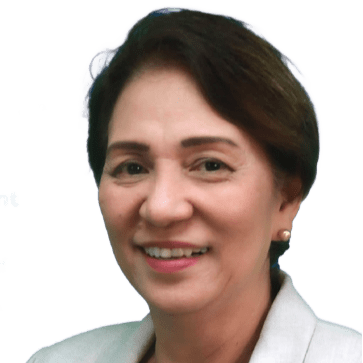
Dr Leah BUENDIA
Undersecretary, Department of Science and Technology (DOST) Philippines
Dr. Leah J. Buendia is the Undersecretary for Research and Development at the Department of Science and Technology (DOST) in the Philippines, where she leads national science and technology initiatives, promotes research excellence, and builds partnerships for innovation and disaster resilience. She was elected Vice Chair for Asia Pacific at the UN Commission on Science and Technology for Development in 2024, representing Philippine leadership in STI policy.
Dr. Lilis Mulyani is a Researcher at the Indonesian National Research and Innovation Agency (BRIN) and Chairperson of the Indonesian Young Academy of Sciences (ALMI) (2024 – 2026). Her main research focuses on land law and agrarian studies, human rights, marginal and indigenous group rights. She has a long experience in bridging science to policy working closely with the government of Indonesia. Her current main interest with ALMI is to communicate science in policy making and everyday lives of the people.
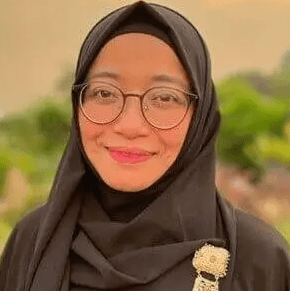
Dr. Lilis MULYANI
Chairperson, Indonesian Young Academy of Sciences (ALMI) and Member of the Advisory Council of the ISC Regional Focal Point for Asia and the Pacific
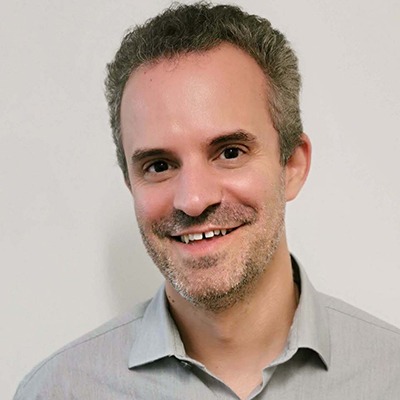
Dr Jean-Christophe MAUDUIT
Associate Professor of Science Diplomacy, University College London, United Kingdom
Dr. Jean-Christophe (JC) Mauduit is an Associate Professor of Science Diplomacy at University College London (UCL) in the Department of Science, Technology, Engineering and Public Policy (STEaPP). Prior to joining UCL, he was a Visiting Scholar at the American Association for the Advancement of Science in Washington, D.C. as well as an Associate Director at the Science Diplomacy Center at the Fletcher School of Law and Diplomacy (Tufts University, Boston). He has worked for the Centre National de la Recherche Scientifique (Nice, France) on the European Space Agency “Gaia” satellite mission and for the California Institute of Technology (Pasadena, California) on the NASA Spitzer satellite mission. He was also a Project Officer for the International Astronomical Union (Cape Town, South Africa) focusing on scientific development issues. Dr. Mauduit holds a B.Sc. (Magistère, Theoretical Physics, Paris XI-Orsay, 2002), an M.Sc. (DEA, Gravitational Systems Dynamics, Paris Observatory, 2003), a Ph.D. in Astrophysics (Extragalactic Astronomy, Paris Observatory, 2007) and an M.A. in Law and Diplomacy (Fletcher School, 2017), specializing in International Organizations, Environmental & Resource Policy and Science Diplomacy. He is a member of the International Astronomical Union, the American Astronomical Society and the American Association for the Advancement of Science. Beyond UCL, he also served as the Co-Chair of the European Union Working Group on ‘Building capacity for EU science diplomacy’ and is also currently the co-Chair of the International Science Council Expert Group on science diplomacy.
SESSION 5 | TUESDAY, 2 DECEMBER 2025 | Two Worlds, One Mission: How Scientists and Diplomats Practice Science Diplomacy
16:00-17:30 SGT | 09:00-10:30 CET | Zoom
Explore how professional cultures, attitudes, and methodologies shape collaboration and communication in international scientific and diplomatic contexts. Gain a deeper understanding of how to navigate and bridge professional differences to foster more effective partnerships in science diplomacy.
Speakers
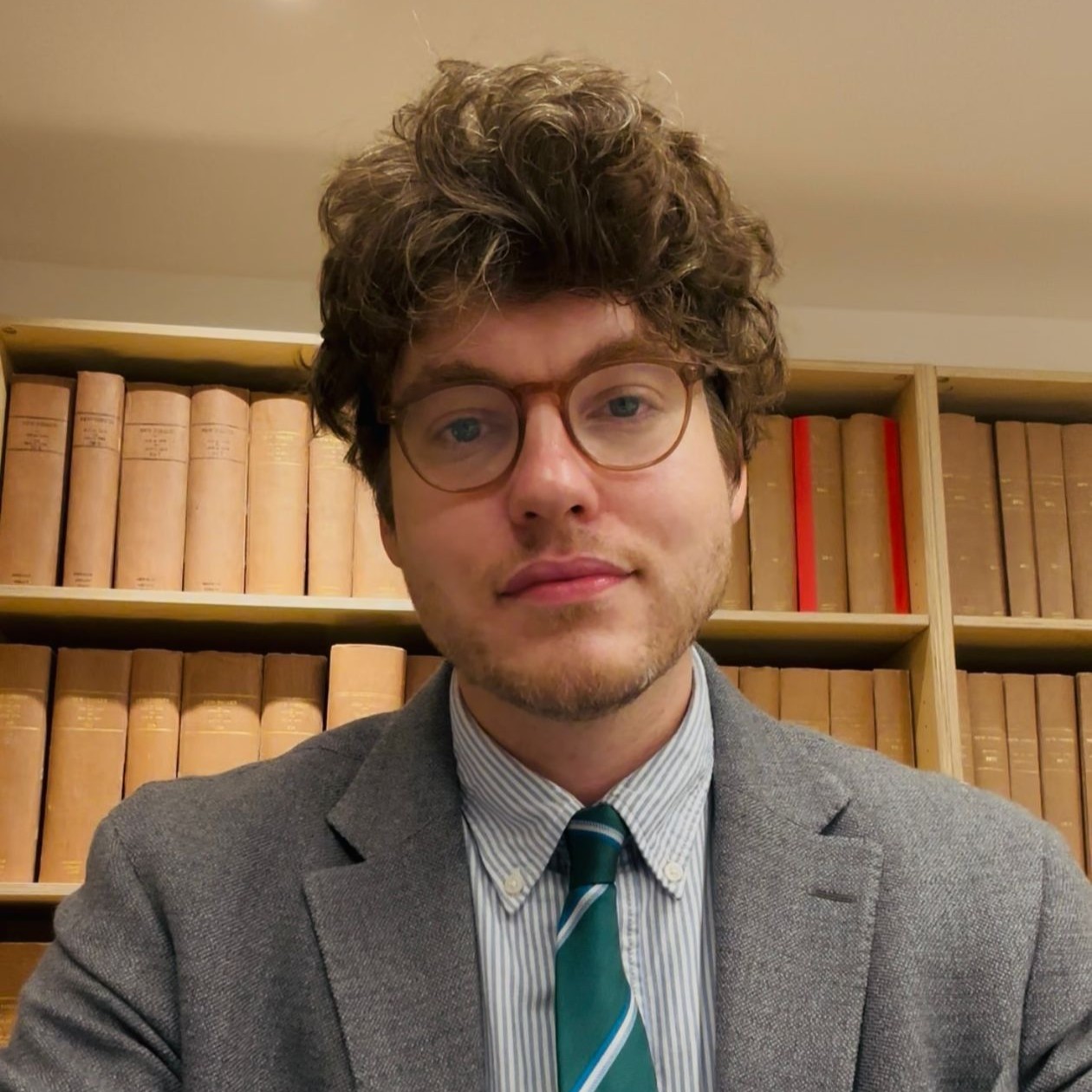
Mr Eric PIAGET
Science Diplomacy Coordinator, EUTOPIA European University
Mr Eric Piaget is the Science Diplomacy Coordinator for EUTOPIA, based at the Vrije Universiteit Brussel (VUB). He is also a researcher at the United Nations University’s Institute on Comparative Regional Integration Studies (UNU-CRIS), where he focuses on various facets of modern diplomacy within the Unit on Non-Traditional Diplomacy (UNTRAD). In the latter half of 2022, he served as Chair of the EU Science Diplomacy Alliance along with Luk Van Langenhove. Prior, he worked for the Swedish ministry of foreign affairs, the Unrepresented Nations and Peoples Organisation (UNPO), the EU Publications Office, and the EU think tank, Friends of Europe. He is a graduate from the University of Sussex and the VUB, where he studied modern history and international relations. As a dual national of Sweden and the United States, he is very passionate about maintaining strong transatlantic ties.
Ms Changu Chaudhary is an experienced professional who has built and led teams in Science and Technology across government, including in the Foreign, Commonwealth, and Development Office, Government Office for Science, Ministry of Defence, and Department for Business and Trade. Her previous roles also included work on high profile conflicts and crisis management such as the Yemen Humanitarian Crisis and the Occupied Palestinian Territories. Ms Chanduhary is an ambitious, empathetic leader who gets results by empowering others who believes that kindness, clarity, and trust drive high performance – and lasting impact. Ms Chanduhary is a graduate of the Government Leadership College’s Future Leaders Scheme.
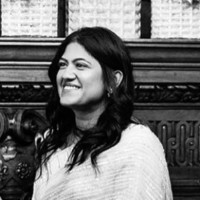
Ms Chandu CHAUDHARY
Regional Director for Science and Innovation for South East Asia, British High Commission, Singapore
Contact & More Information
For questions or more details, contact us at scitech@asef.org.
Start your Science and Technology Diplomacy journey with ASEF and join us!
This webinar series was part of the Asia-Europe Training and Youth Summit on Science and Technology Diplomacy.

